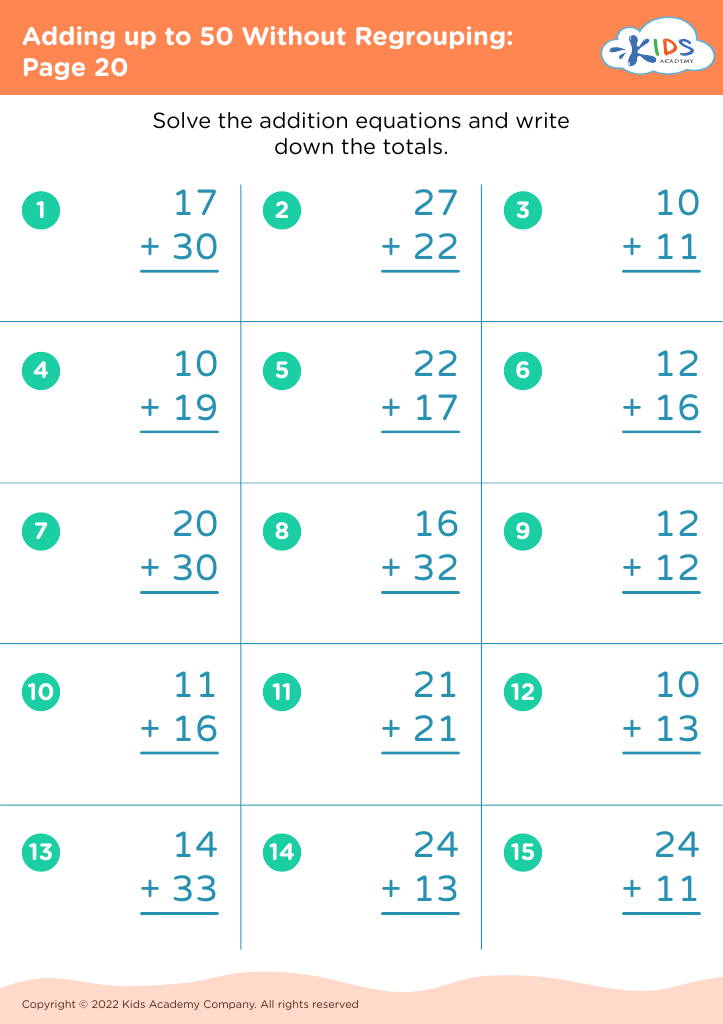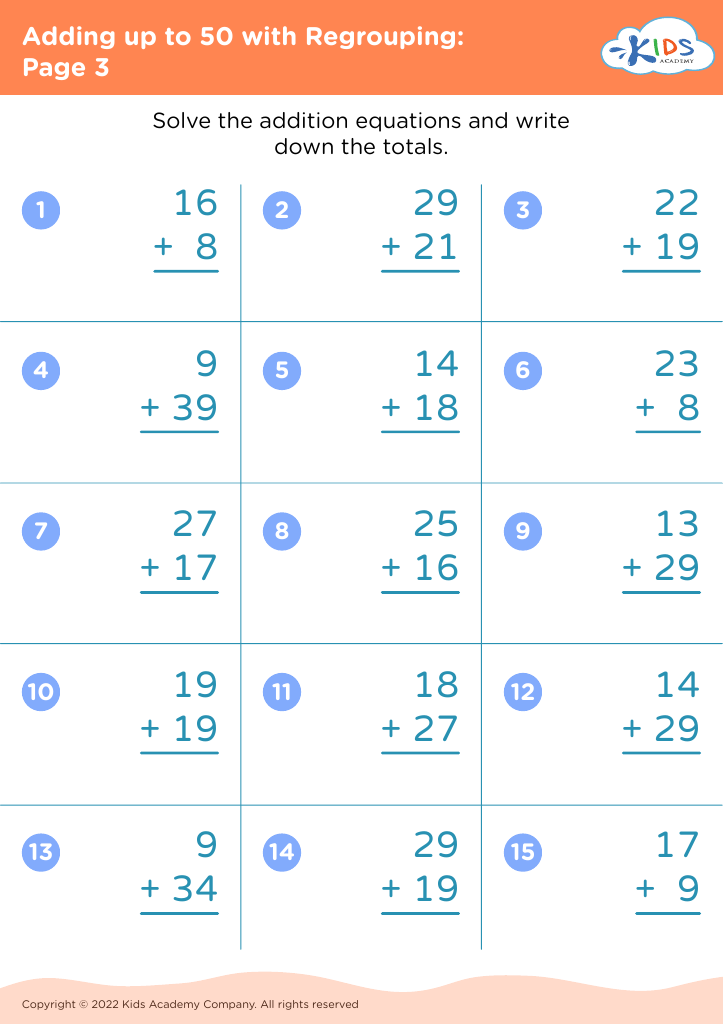Practice counting Adding up to 50 Worksheets
3 filtered results
-
From - To
Unlock your students’ potential with our “Practice Counting: Adding up to 50 Worksheets!” Designed for early grade learners, these engaging and colorful worksheets help children master addition up to 50 in fun, interactive ways. Each worksheet is tailored to enhance counting skills, promote problem-solving, and build a strong mathematical foundation. Perfect for classroom use or homeschooling, these resources provide comprehensive practice that fosters confidence and academic success in young mathematicians. Download these invaluable tools today and make math learning a joyful journey for your students! Visit our page for more details and boost your child’s counting skills.
Understanding basic arithmetic, including addition, is fundamental to early mathematical development, and practice counting while adding up to 50 lays a crucial foundation for this learning. For parents and teachers, emphasizing this area prepares children for more complex calculations and enhances problem-solving skills.
Counting and adding up to 50 helps young learners develop number sense, an essential cognitive skill allowing them to recognize relationships between numbers. This builds confidence in their ability to navigate mathematical challenges. Regular practice encourages accuracy and speed, reducing math anxiety and fostering a positive attitude towards the subject.
When children continuously engage in adding scenarios, they learn to understand numerical value, sequence, and grouping, which are vital for understanding place value—a core concept in all higher mathematics. Reaching proficiency in this range of numbers also promotes cognitive development related to logical thinking and pattern recognition, skills that are important in various disciplines beyond mathematics.
Parents and teachers should encourage this practice not only to meet academic standards but also to empower children with the intellectual tools necessary for future learning. Equipping children with strong foundational skills in mathematics strengthens their overall educational trajectory and operational capabilities in everyday life situations where math is applicable.














